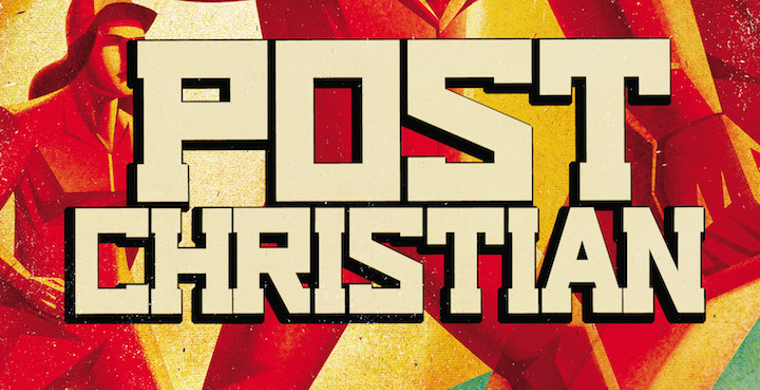POST-CHRISTIAN
BY DUANE W.H. ARNOLD
www.virtueonline.org
April 25, 2021
We may have seen the article buried in the bottom of a newsfeed, or maybe we discovered it in the links provided by this or another website. It was the result of a Gallup survey released on March 29, 2021. The headline gave the news, 'U.S. Church Membership Falls Below Majority for First Time'. The first paragraph of the survey's findings stated the following:
"Americans' membership in houses of worship continued to decline last year, dropping below 50% for the first time in Gallup's eight-decade trend. In 2020, 47% of Americans said they belonged to a church, synagogue or mosque, down from 50% in 2018 and 70% in 1999. U.S. church membership was 73% when Gallup first measured it in 1937 and remained near 70% for the next six decades, before beginning a steady decline around the turn of the 21st century."
Now, I fully expect that this survey will simply be explained away by many and, most especially, by those who identify with a particular faith tradition. Additionally, there will be those who will anecdotally point to this or that church that is "really growing". Nevertheless, the decline in formal affiliation is consistent among all age groups from Gen Z to Boomers and Traditionalists. The decline is spread across the political spectrum and embraces Republicans, Independents and Democrats. While the decline among Catholics is greater (18% in three years) Protestant churches (down 9%) have also been affected. This trending decline, moreover, is not merely consistent with what has been taking place and measured over the last thirty years, it is now increasing in speed and severity as we are now in the midst of generational change. Traditionalists (born before 1946) and Boomers are rapidly departing the scene, taking with them their faith affiliation and their financial support.
For some years, many of us have spoken and written about America becoming a post-Christian society somewhat similar to what has taken place in Western Europe. While I hesitate to say it, I think we may have gone past the tipping point.
This is not to say that we will no longer hear Christian language or see Christian symbols in American society. We most certainly will, but they will be increasingly divorced from the reality of the faith as it has been known and practiced through the centuries. The crosses and "Christian" placards carried by the Capitol insurrectionists certainly spoke of something but, at least for me, they were wholly outside of "the faith once delivered". Likewise, the all-inclusive and pansexual rhetoric of the religious Left appears, at least to me, to lack coherence or to identify with historic Christianity. In both cases, the language and symbols are divorced from the reality of Christian faith. In both cases, the language and symbols are simply being used to promote an agenda rooted in the desire for, and the exercise of, power. Indeed, the prostituting of Christian language and Christian symbols in aid of secular politics may well turn out to be not only a shameful and sinful exercise, but one that further alienates rising generations.
A question, however, remains. Once we set aside the false religious rhetoric, the symbols and the folk religion of this era, how are we to navigate within a post-Christian society?
In answer I would simply say this, we've done it before. For over three centuries the Early Church grew and flourished in the pre-Christian society of the Roman empire and its dependents. In the intervening centuries, missionaries established the faith in societies which knew nothing of the Christian faith. From ancient Persia, to India, to China and Japan small Christian communities formed. The communities differed in type and size. Yet they were sufficient in themselves, even when the societies around them were hostile or dismissive.
In a series of articles I wrote last year about 'Finding Church' I stated that it was not hard, all you had to do is look and you could find how the Early Church conducted itself. It is there for all to see. It provided the model for missions throughout the centuries. I truly believe that it could provide a model for us at this time as well.
Duane W.H. Arnold, PhD
The Project
https://phoenixpreacher.com/finding-church/
https://phoenixpreacher.com/finding-church-part-2/
https://phoenixpreacher.com/finding-church-part-3/














